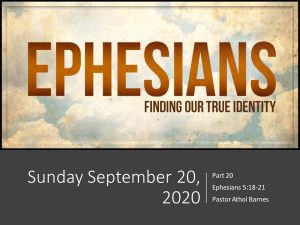
In 2014 there was an article in the news about a boy by the name of Davion in Florida, who at the age of 15 had been in the foster care system all his life. Davion desperately wanted to be adopted into a loving family and he knew that because of his age, this was highly unlikely.
He decided to be proactive and he worked hard to improve his physical appearance and his grades at school. On his own initiative, Davion boldly stood before the congregation of his local church and asked if anyone would choose him to be their son.
Davion was crying out to be chosen, to be a part of a family. Can you imagine your children having to market themselves and be on their best behavior and get all “A’s” in school to be accepted and loved?
The point is that we all have a deep desire to belong, to be chosen and to be a part of a family. This is the invitation that Jesus introduced when he walked the earth, and the same invitation stands today. We get invited into the family of God, where we are accepted just as we are, and our Father will never give up on us. It’s a family that wants the best for you. It’s a family that offers real hope for today and for your future.
In Mark 3:13 to 6:29, we catch a glimpse of the life and ministry of Jesus as he is at his most popular. Everywhere he goes crowds follow him in hopes of seeing a miracle or being healed themselves.
In Chapter 3 from verse 13, Jesus chooses the disciples to be in his family. Jesus didn’t pick the best theological minds and esteemed leaders, rather he chose ordinary fishermen, tradesmen, a politician, and a tax collector to be part of his family. Jesus chose them and used them to start a global movement that changed the world.
At the same time, Jesus was rejected by his own family (Mark 3:20-21). When his family heard about his ministry they said, “He is out of his mind.”
Jesus knew what it was like to be rejected, abandoned, and betrayed by your own family.
Jesus identifies with the many people whose family abandon and disown them when they place their faith in him as Lord.
Jesus identifies with Davion’s pain. Jesus identifies with your pain and Jesus chooses you to be in his family. Just a few minutes later Jesus said regarding his family, “For whoever does the will of God, he is my brother and sister and mother.” (Mark 3:35). Whoever is willing, has faith and believes becomes a member of this new family.
Faith Comes by Hearing is an organization committed to producing the audio Bible for every language in the world. One of the recordings is for a tribal group of Indians in Bolivia called Quechua. When the Quechuas first heard the Bible in their heart language, the response was amazing. Whole villages came to faith in Christ, families were healed, and churches were planted throughout the region. As the FCBH leadership began asking questions of the Quechua people, they found out that the most impactful Bible story was the healing of the women with the issue of blood found in Mark 5:21-34.
The woman had a chronic bleeding issue that had gone on for twelve years, and like many people with chronic illnesses, she emptied her bank account paying her medical bills. In addition, this medical problem made her ceremonially unclean in the community as per the law of Moses, which meant she was shunned, alone and broken. Out of a place of desperation she takes a huge risk and works her way through the crowd on her hands and knees to touch the hem of Jesus’ garment. As she reaches out and touches the edge of Jesus’ cloak, she is immediately healed.
The reason why this particular story impacted the Quechua people was because they could identify with being rejected and shunned by society. It wasn’t until as recently as 1965 that there was a government ruling to declare that the Quechuan’s had a soul. Up until that time, they were regarded as nothing more than primitive animals.
When the Quechua’s hear the story in Mark chapter 5, they identify with the women considered unclean. They join with that woman and when she touched Jesus, they reached out and touched Jesus. Something happened in their souls and their spirits at that moment.
They were set free from their pain when they grasped what Jesus said in Mark 5:34, “Daughter, your faith has made you well; go in peace and be healed of your disease.”
The Quechua at that moment would begin to sob and break down. Their heart hurt because Jesus saw this woman as a human being, he healed her and invited her into his family. He freed her from her suffering. Their hearts hurt because Jesus, who now speaks their language, turns to them, and offers them that same invitation.
Jesus is now turning to you and offering you the same invitation.
After Davion spoke in the church, his story went viral and today he has a forever family.
Someone chose to adopt him into their family.
Imagine yourself standing in front of a church and pleading for someone to welcome you into their family, and even before you finish your speech, Jesus stands up and shouts out, “I chose you!”. This is what Jesus does every-day, he says, “I love you and choose you just as you are (see Hebrews 2:11).
Jesus is the only one who has the power to set us free from our shame and to present us as righteous before God the Father. Those who believe in Jesus and receive him are the ones who are made holy.
Have you made the decision to make Jesus Christ Lord of your life?






